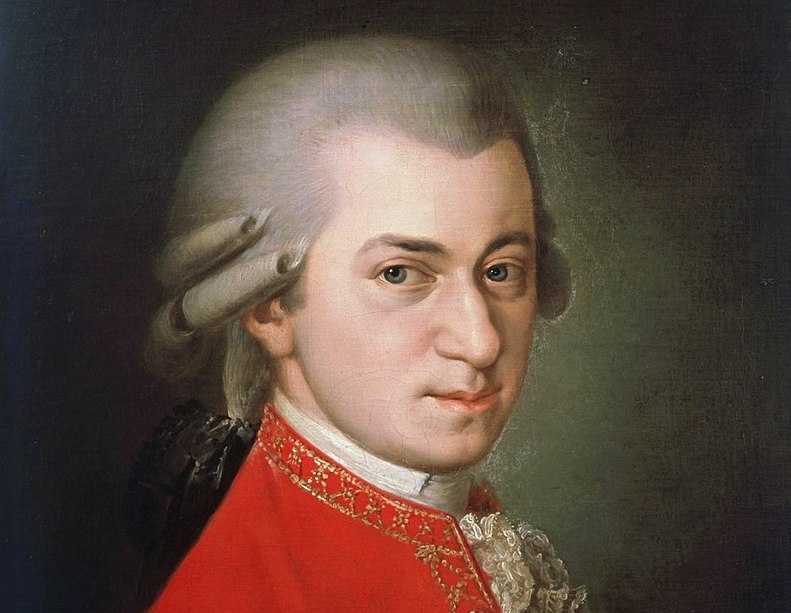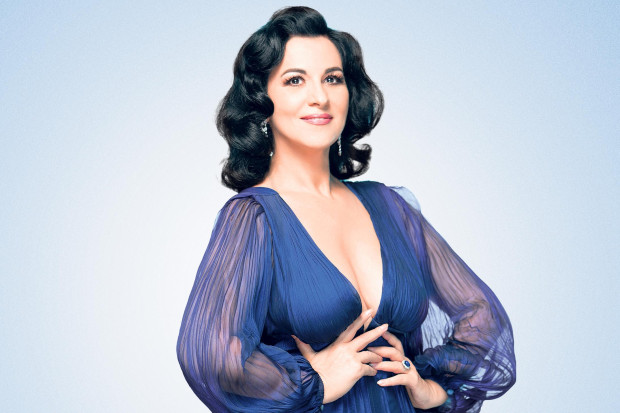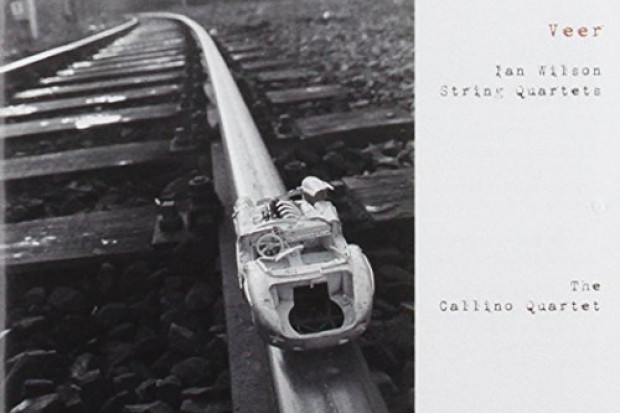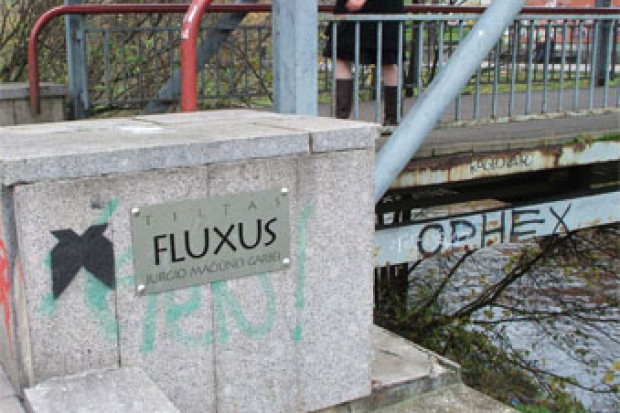
‘Must Music be Accessible?’
In response to composer Raymond Deane’s article, ‘Must Music be Accessible?’, which appeared in our July-August issue, we received a letter from the writer Desmond Fennell. We took the opportunity to ask both Raymond Deane and Desmond Fennell to debate the matter by e-mail and allow us publish the correspondence.
* * * * * *
Dear Raymond,
Your article, ‘Must Music be Accessible?’, attempts to explain why most people find the ‘modern’ music that emerged nearly a century ago, and much contemporary music that derives from it, ‘inaccessible’.
I think that your arguments might have got closer to the truth of the matter if you had spoken of people finding this kind of music displeasing – as opposed to their finding music of the earlier or tonal kind pleasing. Most people, being musically uninstructed, do not seek ‘comprehension’ when they listen to music, but rather pleasure.
You are right that some of the pleasure in hearing a piece of music that has often been heard consists in that familiarity with it. But I doubt that you are correct in attributing the displeasure which ‘contemporary’ music has caused most people for nearly a century (!) to their not having heard it with sufficient frequency.
I believe that the cause lies rather in a change in the composer’s intention. In the western tradition prior to modernism, as in other musical traditions, part of the composer’s intention in creating an instrumental work or a song, was to please people in general – ordinary, uninstructed people as well as musical cognoscenti. And many composers succeeded in that aim, some of them enormously and for all time. But the modernists did not include that aim in their intentions, and neither have most of those who have followed them.
While hoping to please the cognoscenti and win their admiration, they have not sought to give pleasure to people in general: on the contrary, they have often wanted to displease them, for their own good, by assaulting their sensibilities, by shocking and upsetting them. And this indifference or hostility to pleasing people has had its natural result.
To be tautologous, people don’t like what gives them no pleasure or causes them displeasure. It is as simple as that.
Yours,
Desmond Fennell
* * * * * *
Dear Desmond,
To begin with, I wasn’t centrally trying ‘to explain why most people find … “modern” music … “inaccessible”’. This constituted only one aspect of my argument. I pointed out that canons of accessibility – and hence, in my view, of ‘pleasurability’ – are relative and historically conditioned.
To say that people ‘find … this kind of music displeasing – as opposed to their finding music of the earlier or tonal kind pleasing’ completely overlooks my reference to Gesualdo whose music is earlier, but not yet tonal.
To assert that ‘most people … do not seek “comprehension” … but rather pleasure’ is in fact irrelevant. Regardless of what people ‘seek’, their pleasure is conditional on their comprehension, which is not merely a matter of ‘being musically uninstructed’ or otherwise, as I argued at some (obviously wasted) length.
Furthermore, this undialectical opposition of pleasure and comprehension implies an extremely mindless definition of the former (equating it with entertainment or distraction) and an extremely bloodless definition of the latter (equating it with analysis). A pity we can’t use the French words ‘entente’ or ‘entendement’, related both to listening and to understanding, but also etymologically to stretching our attention.
I don’t for one second believe that Gesualdo’s or Bach’s sole ‘intention’ in writing music was ‘to please people in general’, nor that this has at all times and ‘in other musical traditions’ (some of which I mentioned in my article) been the case. Composers at all times – including our own – and in all traditions have on occasion written works designed to appeal to a broader public and at other times have concentrated on writing what came naturally to them and what they did best.
The final tautology isn’t as simple as all that: it reminds me of Freud’s crude equation of pleasure with an absence of tension. People often come to take pleasure in what initially caused them displeasure, and they must be given access to the possibility of making this step. That’s all I was saying.
Sincerely,
Raymond Deane
* * * * * *
Dear Raymond,
Thank you for your reply. But I have a difficulty with it because you do not say whether you agree or not with my main point!
Your article dealt among other things with why, for nearly a century, most musically-interested people have not liked post-tonal music. You explained this as due to their not having heard enough of it. I suggested a different explanation; namely, that, generally speaking, post-tonal composers – unlike their pre-tonal and tonal predecessors – have not included in their composing intentions the giving of pleasure to people in general. That, I said, generally speaking, has not been ‘part of their intention’.
You seem to have trouble with the notion ‘pleasure’, so let me be specific. Musically-instructed people, the cognoscenti, can derive intellectual pleasure from music, in the sense of appreciating in technical musical terms what the composer is doing. When I talk about the post-tonal composers disregarding giving pleasure to people in general, I am talking about the emotional pleasure which people have got from music since music began: the feeling, that is, of agreeable emotions in an ordered sequence (and on occasion, additionally, the pleasing recall of previous hearings of the same music).
I wrote of the post-tonal composers: ‘While hoping to please the cognoscenti and win their admiration, they have not sought to give pleasure to people in general: on the contrary, they have often wanted to displease them, for their own good, by assaulting their sensibilities, by shocking and upsetting them. And this indifference or hostility to pleasing people has had its natural result.’ I now add: It has been a case of an elitist Puritanism asserting its Righteousness against a Pleasure deemed sentimental, sensual, populist and corrupt.
You don’t say whether you agree, even in part, with this explanation of why, after a century of it, most people still don’t like post-tonal music (with the entirely logical result that it isn’t often performed!)
Yours,
Desmond Fennell
* * * * * *
Dear Desmond,
Clearly I disagree with your main point, and I have problems with your terminology and definitions.
I already dealt specifically with the intentional fallacy to which you are obviously very loyal. Generally speaking artists’ ‘intentions’ are of secondary importance: what matters is the resultant art, the pleasurability of which is often independent of the artist’s ‘intention’. The late Luciano Berio probably never considered whether or not his music was ‘pleasurable’, but for a great many people the result is precisely that: because his sensibility was one that married intellect with sensuality in the way all great art does.
The same is true of Ligeti, Lutoslawski, Messiaen and other ‘post-tonal’ composers whose work gives pleasure to many people. Just how many varies from country to country depending on the state of their musical education, and the frequency of performances and broadcasts of the works in question. This is not because you have to belong to the ‘cognoscenti’ to appreciate them: young children frequently revel in the sound-world of contemporary classical music, because nobody has told them that it’s ‘dissonant’ or whatever. They may lose this spontaneous appreciation in the course of a puritanical musical education; or because of exposure to the ‘popular’ music of their time, the language of which is by and large primitive and conventional.
As an unashamed hedonist, I have no trouble whatever with the notion ‘pleasure’, only with your narrow definition of it. Your phrases ‘agreeable emotions in an ordered sequence… the pleasing recall of previous hearings’ introduce an element of circularity: music is pleasurable because it is pleasing. You have persistently disregarded the historical dimension of my argument: by your definition, the music of Gesualdo would be as inadmissible as that of Xenakis.
Sincerely,
Raymond Deane
* * * * * *
Dear Raymond,
Well, it seems that we have two clashing explanations of the phenomenon! I reply just to make a concession to your main criticism of my theory and to add a few tail-ends.
My argument is, essentially, that the broad distaste for the music in question – call it, The Problem – is due to the post-tonal composers having departed from the normal relationship of musical composition to human need. I defined that departure as the new composers breaking with the preceding practice of including in one’s composing intentions the giving of emotional pleasure to people, i.e. relating in that way to human need. Admonished by you, I will now put that differently.
The modernist breach was with the previous and normal composer practice of assenting, in oneself, to the human need to find in music emotional pleasure that feeds the soul. Composers, identifying with that need in themselves, had made music which satisfied it in themselves and thus in people generally. But the modernist pioneers refused to cater to that need in themselves. Self-denyingly – here the puritanism entered – they gave priority to what, on the one hand, European music, on the other, the sentimental bourgeoisie seemed to need for their good. They thereby made music which failed to satisfy that fundamental human need from music. And other composers, following in the furrow they had ploughed, have likewise failed.
I know that this modification of my argument will not affect yours, because you believe that the modernist composers and their music have played no part in causing The Problem. You blame the mediators of musical instruction and performance for not having made people familiar with the music in question; their stupidity or their malice, I’m not sure which. (For myself, I see their discriminatory behaviour as resulting simply from their knowing what kinds of western music the average music lover likes or doesn’t like.)
I see that Gesualdo is important to you. I haven’t responded to your mentions of him for two reasons. I don’t know his music, but more importantly he was, I gather, a madrigal composer and I have therefore included him by implication in my references to pre-tonal composers. They, like Chinese, Indian and all normal composers identified with the human need with respect to music that I have specified. As a result – I would say – their musics prove much more readily acceptable to western music lovers – when they hear them – than the music we call ‘contemporary’. Has this struck you?
Myself, personally, I have often found modernist music interesting and stimulating, but that has nothing to do with the Problem we have been discussing.
Thanks for engaging in the exchange.
Yours,
Desmond Fennell
* * * * * *
Dear Desmond,
It is indeed remarkable to find modernist composers being berated for ‘self-denial’!
No matter how you twist and turn it, I cannot accept such a phrase as ‘the previous and normal composer practice of assenting, in oneself, to the human need to find in music emotional pleasure that feeds the soul’. Who is to define this ‘normality’? Who is to codify these ‘needs’? Are these phenomena entirely static, standing outside history? I am inexorably reminded of the canons enunciated by Zhdanov and other proponents of ‘socialist realism’: the composer must embody the essence of the soul of the proletariat, always as defined by the party élite. Yet those who most faithfully conformed to these demands – Kabalevsky, Khatchaturian, Glière – have been marginalised by the public, which has taken to its heart those such as Prokofiev and Shostakovich who continued stubbornly to contradict and expand our notions of ‘normality’.
My rejection of your modified argument is not precisely because I ‘believe that the modernist composers… have played no part in causing The Problem’. If you cast another glance at my original article, you will see that I don’t minimise The Problem or acquit composers of all responsibility. I do however believe that the history of music is a history of evolving forms within a context of social evolution, and not primarily if at all a history of ‘intentions’. You acquit ‘the mediators of musical instruction and performance’ (and, let’s not forget, the media) of all agency in moulding the public’s taste by asserting that their behaviour results ‘simply from their knowing what… music the average music lover likes or doesn’t like’, or, put another way, ‘the customer knows best’. I believe this is a rather idealised vision of the machinations of capitalism.
As for Gesualdo, yes, he is very important to me. Incidentally, it will no longer do to call him ‘a madrigal composer’: today his religious works, in particular the three sets of Tenebrae, are accorded equal if not greater importance to his madrigals. In my youth I was fascinated by his music because of its eccentricity and extremism. With advancing years and repeated listening I have come to appreciate the utter and haunting rightness of his harmonic choices, inexplicable (on the face of it) within the musical canons of his time. Ultimately, as I originally stated it, this is the problem: modernist music defines its own canons and hence rarely yields its pleasurable secrets on a first hearing. The act of repeated listening becomes a learning-process, the end result of which is a sensual pleasure compounded by the joy of having expanded one’s horizons. The corporate and educational arbiters of musical taste seek the opposite: a narrowing homogenisation and commodification both of demand and supply.
I have enjoyed our exchange.
Sincerely,
Raymond Deane
Published on 1 September 2004

















